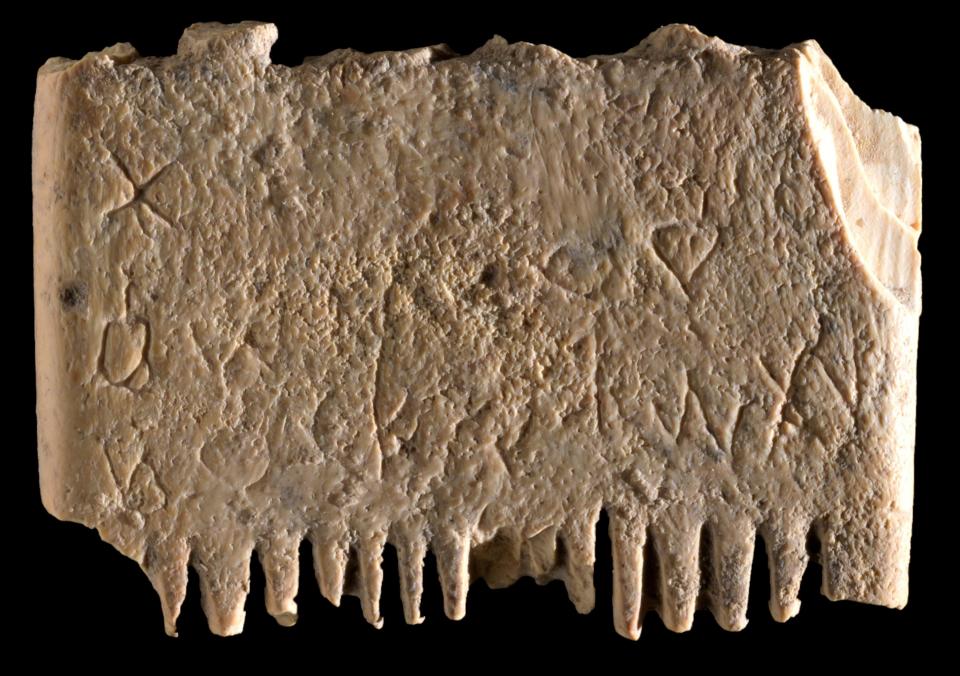What is the oldest language? Endangered and extinct languages, explained.
Corrections & clarifications: An earlier version of this story contained inaccurate or incomplete facts about the history of language.
Language is an essential part of human communication, allowing people to express ideas, emotions, imagination and much more. But even while speaking the same language, no two people sound exactly alike. This lets people distinguish one another by their voices, dialects and accents.
About 7,168 languages are spoken in the world as of 2023, according to Ethnologue, a site run by the Linguistic Society of America. About 40% spoken languages are endangered, meaning its users have a different dominant language and the endangered language might not be passed to the next generation.
Cherokee from the United States, Parsi from India and Iran, Korandje from Algeria, and Tetserret, from Niger, are some of the 3,045 endangered languages, according to Ethnologue.

What is the oldest language?
Well, it's complicated.
Daniel Heiber, a linguist who studies endangered languages, said in an interview with the publication Scientific American that determining which language is the world's oldest language is "a deceptively simple task." On the one hand, we can look at how old a language is by trying to determine when they diverged from each other and became so distinct that the speakers of the two languages could no longer understand one another. For instance, English and German, originating from a "proto-Germanic" language.
But there are other theories put forth by linguists. For example, the idea that all human language stems from a "proto-human" language, a universal mother tongue that all languages eventually emanated from.
But scientists argue about that, too.
Other researchers argue that the oldest language should be considered the oldest written language we have a record of. Some of the oldest evidence of writing we have comes to us in cuneiform script written on tablets in the Sumerian and Akkadian languages and dating back "at least 4,600 years" according to Scientific American. There are also ancient Egyptian hieroglyphs dating back to around the same time.
Aramaic is thought to have emerged around the 11th Century B.C.E. Tamil, spoken primarily in what is today southern India, appears in written form in the 5th Century B.C.E., according to Encyclopedia Britannica. What is generally referred to as "Classical Sanskrit" appears somewhere around the 6th to 5th Century B.C.E., making it possibly older than Tamil, according to Encyclopedia Britannica.
Ancient Greek is estimated to have emerged around the 14th or 13th Century B.C.E. Scholars date Archaic Chinese back to the 8th Century B.C.E. And Arabic and Hebrew are among some of the oldest living languages, or languages still in use to date, according to Scientific American.
Just Curious: Your everyday questions about life, answered
What is a dead language?
Languages can be categorized as dead, extinct or living languages. Languages are considered "dead" when they're no longer the native language of any community, even if still in use, such as Latin.
Extinct languages are languages which are no longer in use and do not have any descendants that can carry the language to the next generation.
What is the first language?
The first language question presents the same issue as the oldest language question, and the answer again is, well, it depends. It depends on how we determine how language began: from one universal language or not. It also depends on how we are determining time and proving the known existence of the language, for instance, when it first appears written, or how we prove when it was first spoken.
Just Curious for more? We've got you covered
USA TODAY is exploring the questions you and others ask every day. From "How long to boil hot dogs?" to "How to keep your dog calm during fireworks?" to "What to bring to a cookout?", we're striving to find answers to the most common questions you ask every day. Head to our Just Curious section to see what else we can answer for you.
This article originally appeared on USA TODAY: What is the oldest language? History of linguistics, extinct dialects.

 money
money 